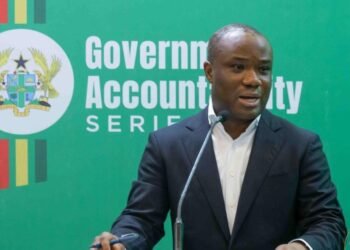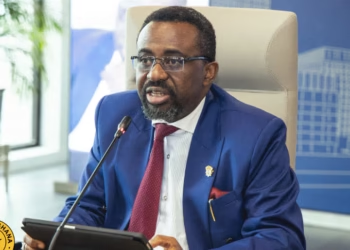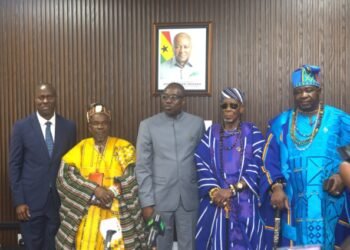Africa’s development financing space is entering a new phase as regional development finance institutions come together to support a fresh initiative being championed by the African Development Bank Group.
The proposed Pan-African Financial Coordination Platform aims to strengthen cooperation, eliminate duplication of efforts, and create a unified system that maximizes development impact across the continent. With Africa facing rising demands for long-term financing, coupled with persistent economic headwinds, this collaborative approach is emerging as a strategic response to bridge resource gaps and unlock large-scale opportunities.
The African Development Bank Group President, Sidi Ould Tah, held high-level meetings with leaders of Africa’s major DFIs and private sector financial partners at the Bank’s headquarters in Abidjan. These engagements followed discussions with heads of African securities exchanges, signaling the scale of ambition and the broad coalition the Bank intends to build.
RelatedPosts
During the deliberations, Dr Ould Tah highlighted the urgency of the initiative. “A new framework for our partnership work means we rely more on you… our countries are in need of huge resources,” he told the leaders of institutions such as the ECOWAS Bank for Investment and Development, the Eastern and Southern African Trade and Development Bank, the West African Development Bank, the Africa Finance Corporation, and Shelter Afrique.
The envisioned coordination platform will strengthen efficiency through shared project pipelines, harmonized technical standards, and synchronized project implementation. The AfDB believes that cooperation of this magnitude is essential because regional DFIs are closest to the ground, have intimate knowledge of local needs, and are uniquely positioned to deliver impact at both national and regional levels.
As Dr Ould Tah emphasized, “Regional DFIs are closest to the beneficiaries,” underscoring their pivotal role in Africa’s development ecosystem.
Strengthening DFIs to Strengthen Africa
One of the pressing concerns raised during the meeting was the need to strengthen the capital base of DFIs. Greater capitalization would improve their capacity to deliver on their mandates, reduce vulnerability to shocks, and enhance their ability to fund transformative projects.
Serge Ekue, President of the West African Development Bank, drew attention to the importance of maintaining robust equity and stable ratings amid political instability. He noted that despite five coups in West Africa in the past five years, his institution avoided downgrades by maintaining adequate equity buffers. Ekue also added, “We are small enough to care, but big enough to execute,” affirming the critical balance DFIs must uphold.
Similarly, Dr George Agyekum Donkor, President of the ECOWAS Bank for Investment and Development, highlighted the need for larger institutions such as the AfDB to support smaller ones through credibility reinforcement, co-lending schemes, and syndication models. “There must be synergy between the financial institutions,” he stressed.
Collaboration Over Competition
A major theme throughout the discussions was the need to break down silos and build a unified front in tackling Africa’s financing challenges. Sameh Shenouda, speaking on behalf of the Africa Finance Corporation’s CEO, underscored this point clearly. “There are not enough bankable projects, not enough equity resources,” he said, pointing to the necessity of shared efforts and joint project development.
He also emphasized the importance of public relations and collective communication, urging institutions to jointly amplify Africa’s development narrative globally.
“We need to consciously talk together, have joint events at major gatherings such as the United Nations General Assembly. Getting the Africa story out together jointly will be very impactful.”
Sameh Shenouda
The Managing Director of Shelter Afrique, Thierno-Habib Hann, aligned with these sentiments, noting that better coordination would lead to stronger resource mobilization. He highlighted the value of the AfDB’s presence and technical facilities. “We are really working together for large-scale transformation projects, we have great ambitions,” he said.
Towards a Coordinated Development Finance System
Solomon Quaynor, Vice President for Private Sector Infrastructure and Industrialization at the African Development Bank Group, noted that the Bank was committed to operationalizing the ideas shared. “We can work together a whole lot more, do this as a system… that system is not only we, working with you, but you working with others,” he affirmed.
His remarks pointed to a broader goal: building a continent-wide development finance system that prioritizes collaboration over fragmentation.
To translate insights into action, Dr Ould Tah announced the creation of a task force that will address critical issues such as strengthening equity, derisking, enhancing subsidiarity, avoiding duplication, improving concessional lending, and ensuring liquidity for DFIs. He also revealed plans to engage with private sector players and credit rating agencies in London after the final ADF-17 replenishment meeting in mid-December.
The African Development Bank’s new coordination platform signals a paradigm shift in how Africa approaches development financing. By uniting regional DFIs under one coordinated framework, the continent stands to benefit from stronger resource mobilization, more efficient project delivery, and a powerful unified voice in global finance.
READ ALSO: Forestry Commission Laments over Inadequate Ordnance to Face ‘Galamseyers’























